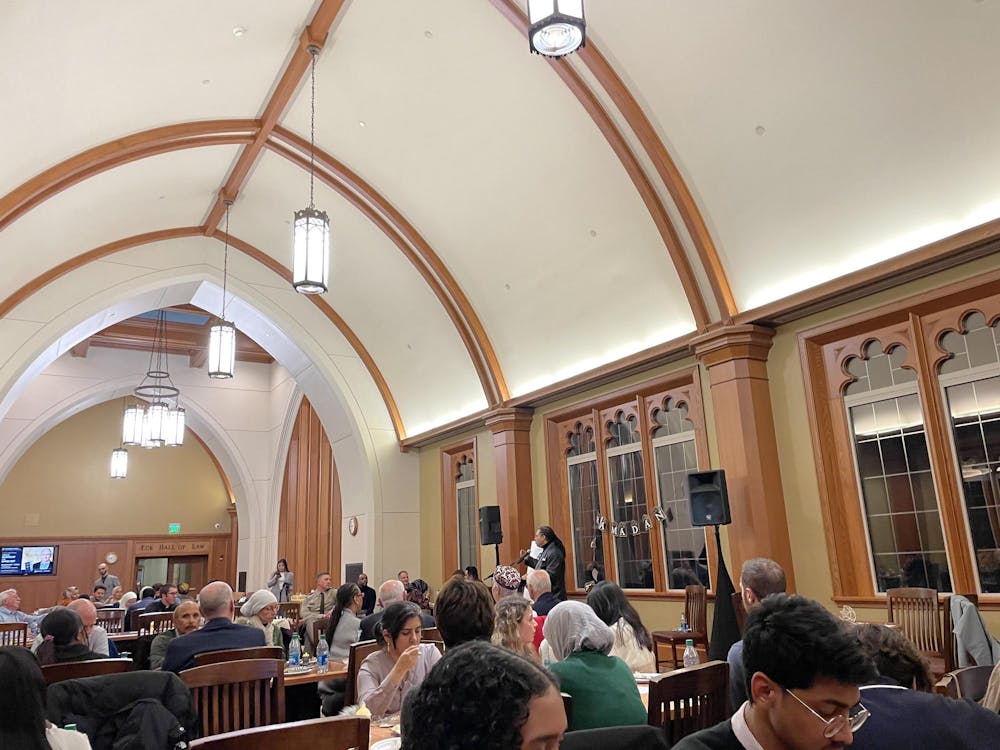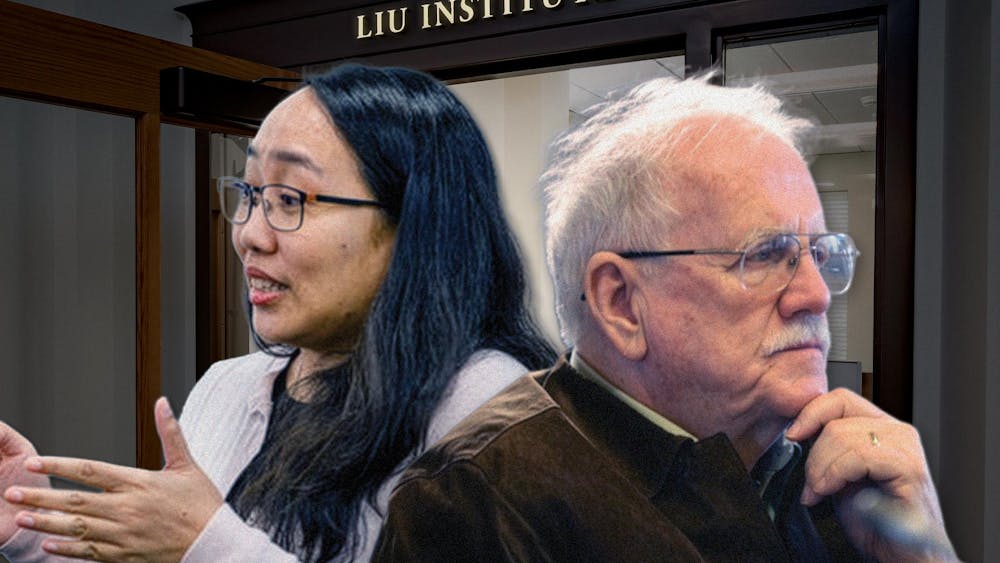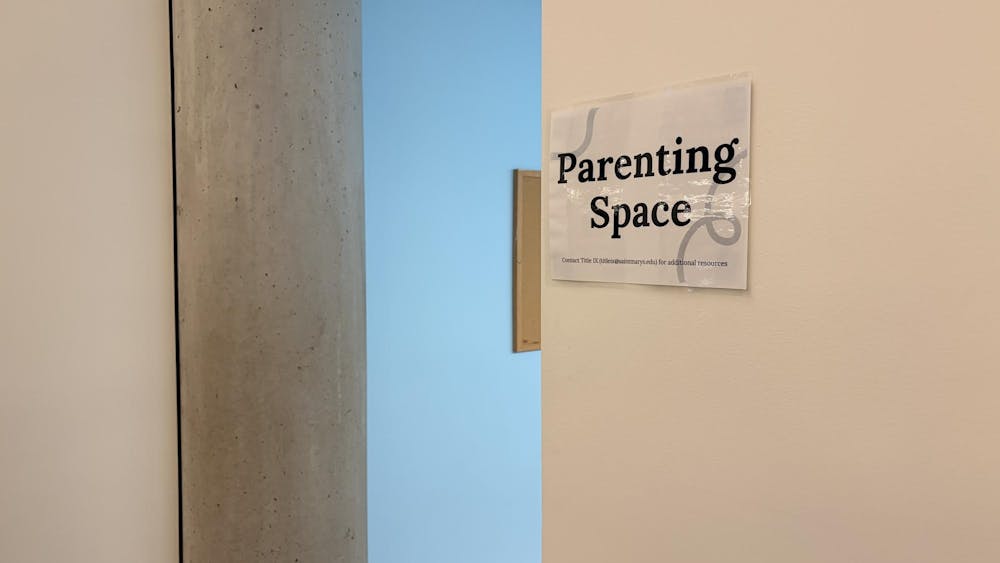On Tuesday evening, students and faculty gathered for food and conversation in Eck Commons for the third annual interfaith dinner hosted by the Notre Dame Law School. Members of the Christian, Muslim, Jewish and Baha’i faiths spoke to discuss the upcoming and ongoing holidays of Easter, Ramadan, Passover and Ridván.
Because the event took place during the holy month of Ramadan for Muslims, where adherents to the religion fast from food and water from sunrise until sunset, the event began with the breaking of the fast for Muslims.
When the sun finally set, Imam Mohammed Sirajuddin of the Islamic Society of Michiana, a mosque near campus, said a traditional Islamic prayer and dates were eaten, as is traditionally done by Muslims to break their fast. Muslim attendees then completed their evening prayers in the corner of the room where prayer mats had been set up.
Following these prayers, attendees got up to get food provided by the halal restaurant Port of Peri Peri in Granger, Indiana. After people had been given the chance to eat, the discussion portion of the evening began with remarks about the Jewish holiday of Passover by Rabbi Karen Companez of Temple Beth-El in South Bend.
Companez discussed the significance of the Passover, which lasts for eight days and commemorates the flight of the Jewish people from slavery in Egypt. The holiday will be observed next month.
“Passover is the Jewish festival of liberation; it's about the Jewish people being freed from slavery. And during the first and second nights of it, we recount our foundational story,” she said. “It's about spiritual rebirth, and new beginnings.”
Companez explained the various components of the Passover Seder meal which includes parsley dipped in saltwater and matzah bread. This unleavened bread is eaten in order to commemorate when the Israelites fled Egypt without having time to fully cook their bread in circa 3000 B.C.
After explaining the details of Passover, Companez drew attention to the current humanitarian situation in Israel and Gaza and its impact on Jewish people.
“We hope and pray that the hostages being held captive by Hamas in Gaza [...] will be freed immediately,” she said. “We also hope and pray for the end of the suffering of all the innocent civilians caught up in this nightmare — those in Israel and those in Gaza.”
Speaking next about Christianity was Dean G. Marcus Cole of the Notre Dame Law School. Cole began his remarks by emphasizing the importance of Passover to understanding Easter.
“There is no way to understand Easter without understanding Passover,” he said.
Cole discussed how the Passover sacrifice of the lambs by the Israelites in Egypt mirrors the sacrifice of Jesus on the cross in order to save those who believe in him.
“It was his blood that was spread not on the doorpost, but instead on the posts that form the cross,” he said. “Easter is for us Christians, our Passover.”
Cole also noted how Jesus’ last supper, which will be celebrated this Thursday, was a Passover feast.
Following his explanation of the significance of Easter and its connection to Judaism, Cole called for unity and respect between religious groups.
“That's my prayer for you tonight, that we use this occasion to come together as different people, for members of the same community to celebrate what's important in our lives and what’s important to each other,” he stated.
Robert Stockman, an affiliated faculty member with the Ansari Institute for Global Engagement with Religion and director of the Wilmette Institute, which teaches the Baha’i faith, then spoke about the festival of Ridván.
The festival celebrates the founding of the Bahá’i faith in Iraq 1863, Stockman explained. Adherents of the Bahá'i faith believe in the essential unity of all religions, believing they all impart true teaching.
Stockman explained Ridván starts on April 21, 31 days after the vernal equinox on March 28.
Concluding the evening’s remarks, Sirajuddin returned to the podium to speak about Ramadan. Sirajuddin noted the month serves as “the month of the Quran,” as well as a month of fasting, with ritual readings of the Quran occurring in mosques.
In addition to serving as a purifying experience for Muslims, Sirajuddin emphasized the act of fasting during Ramadan is meant to serve as a means of instilling discipline and self-restraint.
“Fasting was prescribed to communities that came before you, so that you can learn self-restraint, where you can pull yourself back from even things that are otherwise permitted and lawful… things that are even necessary to sustain life, for which we have natural desires, urges and appetites,” he said, paraphrasing the words of the Quran. “It is spiritual training.”










